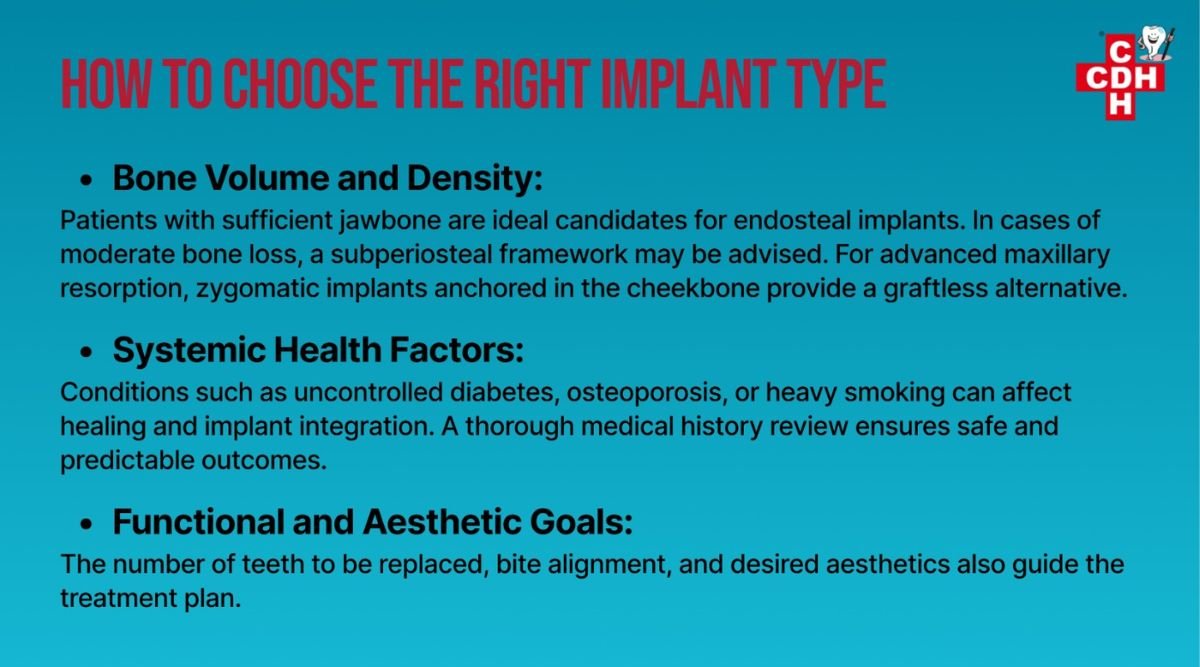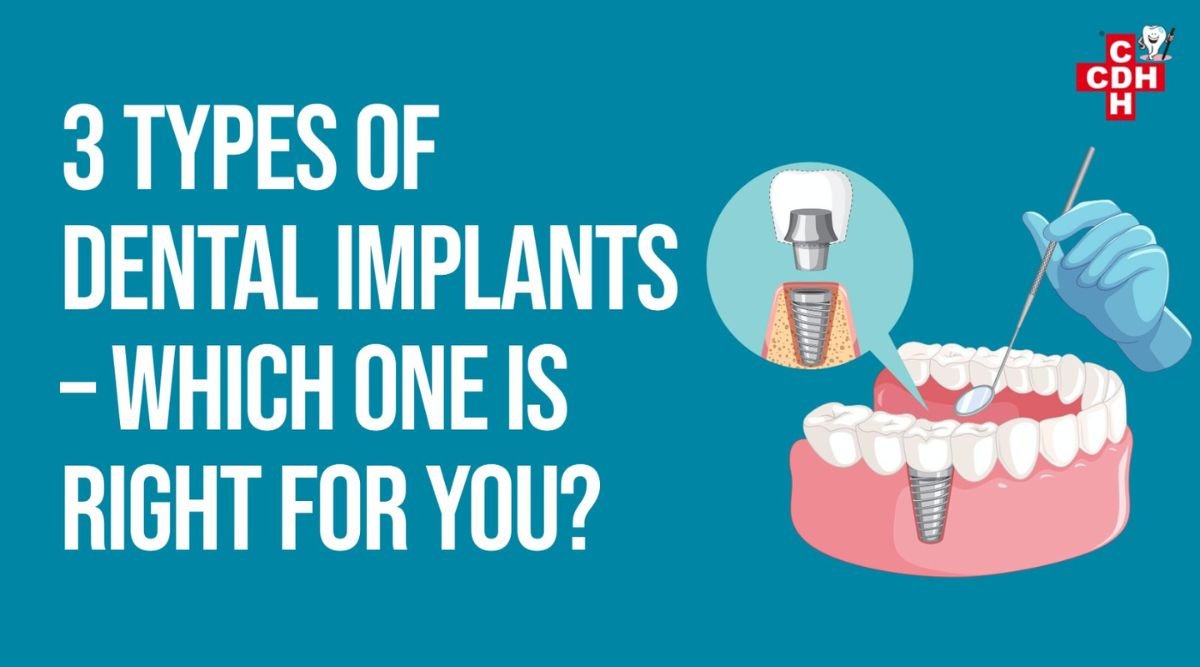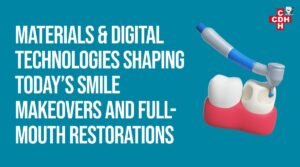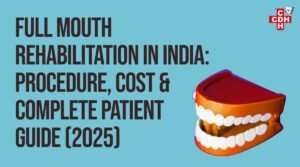Introduction: Why Dental Implants Matter
Missing teeth aren’t just about appearance—they can affect how you eat, speak, and even how confident you feel when you smile. That’s why more and more patients are turning to dental implants, the modern solution that acts and feels just like a natural tooth root.
In this guide, we’ll explore the three main types of dental implants—endosteal, subperiosteal, and zygomatic—and explain how each one works, who it’s best suited for, and why they’ve become the preferred choice for patients worldwide seeking a long-term answer to tooth loss.
What Are Dental Implants?
A dental implant is an artificial tooth root, usually made of titanium, that is surgically placed into the jawbone to support a crown, bridge, or denture. It provides a stable foundation that looks, feels, and functions like a natural tooth.
Unlike dentures or bridges, which rest on the gums or rely on neighboring teeth, implants are anchored directly into the bone, creating a secure and lasting solution. The result? A natural-looking smile that can restore both function and confidence for years to come.
Key Benefits of Dental Implants:
- Prevent bone loss by stimulating the jawbone
- Restore chewing and speaking ability
- Provide a natural-looking, confident smile
- Can last 20+ years with proper care
Implants vs. Dentures vs. Bridges
- Dentures: Removable, may slip, can feel bulky
- Bridges: Fixed, but require support from neighboring teeth
- Implants: Independent, secure, preserve jawbone health
For patients exploring dental tourism in India, implants are especially attractive because they deliver permanent results at a lower cost—without compromising on international standards of quality or safety.
Endosteal Implants
Endosteal implants are the most common type of dental implant. They are small titanium screws placed directly into the jawbone, where they act as artificial tooth roots. Once healed, a crown, bridge, or denture is attached, giving a strong and natural-looking replacement tooth.
Who are endosteal implants best for?
Patients with healthy jawbone density and good oral health are ideal candidates. If the bone is too thin or soft, a bone graft may be recommended before placement.
Advantages of Endosteal Implants:
- Highest long-term success rate (97%+ over 10 years)
- Feels and functions like a natural tooth
- Helps prevent bone loss in the jaw
- Long lifespan with proper care
Disadvantages:
- Requires sufficient healthy bone
- Involves surgical placement and healing time
Cost Comparison:
- U.S.: $3,000–5,000 per implant
- India (Rajkot): $800–1,200 per implant
- Savings: Up to 70%
For many patients, endosteal implants are the gold standard choice, and with dental tourism in India, Americans can achieve the same quality of care at a fraction of the cost—without compromising safety or results.
Subperiosteal Implants
Subperiosteal implants sit on top of the jawbone, just under the gums, instead of being drilled into the bone. They use a custom-made metal framework that supports the replacement teeth securely.
Who are subperiosteal implants best for?
Patients with severe bone loss in the jaw who want to avoid bone grafting. They are often chosen when the jaw is too shallow or weak for traditional implants.
Advantages of Subperiosteal Implants:
- Avoids the need for bone grafting surgery
- Custom-fit framework designed for each patient
- Suitable for people with thin or atrophied jaws
- Can restore full chewing and speaking function
Disadvantages:
- More complex procedure than endosteal implants
- Slightly higher risk of gum irritation or infection
- Long-term success data is newer compared to endosteal
Cost Comparison:
- U.S.: $4,000–6,000 per implant
- India (Rajkot): $1,200–1,800 per implant
- Savings: ~65–70%
For patients who have been told they don’t have enough bone for implants, subperiosteal implants in India offer a life-changing, affordable solution—combining advanced technology with internationally recognized treatment standards.
Zygomatic Implants
Zygomatic implants are specialized implants anchored in the cheekbone (zygoma) instead of the upper jaw. They are much longer than traditional implants and provide strong support when the upper jaw has lost too much bone.
Who are zygomatic implants best for?
Patients with severe bone loss in the upper jaw who cannot receive standard implants or bone grafts.
Advantages of Zygomatic Implants:
- Bypasses the need for bone grafting
- Strong anchorage in dense cheekbone
- Allows full-arch restorations in cases of extreme bone loss
- Success rates comparable to regular implants (~96%)
Disadvantages:
- More complex surgery, requires specialist skill
- Higher risk of sinus complications compared to other implant types
- Not needed unless severe bone loss is present
Cost Comparison:
- U.S.: $6,000–8,000 per implant
- India (Rajkot): $2,000–2,500 per implant
- Savings: ~65–75%
For those facing advanced bone loss, zygomatic implants provide a graftless solution that restores both function and confidence. When combined with modern facilities and experienced specialists, they open the door to smile restoration even in the most challenging cases.
Cost Comparison: U.S. vs. India
One of the biggest advantages of seeking dental implants abroad is the cost savings. While prices in the United States can be overwhelming, treatment in India offers the same international standards at a fraction of the cost.
Dental Implant Cost Comparison
| Implant Type | U.S. Cost | India (Rajkot) | Savings % |
| Endosteal | $3,000–5,000 | $800–1,200 | 65–70% |
| Subperiosteal | $4,000–6,000 | $1,200–1,800 | 65–70% |
| Zygomatic | $6,000–8,000 | $2,000–2,500 | 65–75% |
Patients can save up to 70% on dental implants by choosing India, without compromising on quality or safety—thanks to NABH accreditation and international treatment protocols.
Learn more about traveling for treatment on our Dental Tourism in India Page.
How to Choose the Right Implant Type
Deciding which type of dental implant is right for you depends on several factors:
Selecting the right dental implant is not a one-size-fits-all decision. It requires careful evaluation by a qualified implantologist, who considers:

The best dental implant for you depends on your bone quality, overall health, and your dentist’s clinical evaluation.
At City Dental Hospital, patients can start with a free online video consultation, making it easy to understand your options before traveling.
Our team reviews your dental scans and medical history, then explains which implant type would work best—helping you feel confident in your decision.
Schedule your consultation today
Why Choose City Dental Hospital in Rajkot?
When it comes to dental implants, trust and expertise matter as much as technology. That’s why patients from across the globe travel to City Dental Hospital in Rajkot, India—a center that combines world-class care with genuine patient-first values.
Here’s what sets us apart:
- Proven Experience: More than 10,500 successful implant placements and 3,500+ international patients treated.
- Global Standards: NABH accreditation ensures the same infection control, sterilization, and treatment protocols you would expect in the U.S. or Europe.
- Advanced Technology: 3D imaging, digital planning, and modern implant systems for precision-driven results.
- Personalized Care: From airport pickup to multilingual staff and comfortable recovery facilities, every detail is designed to make patients feel at home.
- Recognized Excellence: Awarded as one of the Best Dental Hospitals in India for consistent quality and innovation.
Patients who choose City Dental Hospital don’t just save on costs—they gain a team of experts committed to restoring smiles with safety, comfort, and lasting confidence.
Conclusion: Your Smile, Your Confidence
Dental implants are the most reliable way to restore missing teeth, and knowing the differences between endosteal, subperiosteal, and zygomatic options helps you make an informed choice. With advanced care, global standards, and affordable treatment, City Dental Hospital in Rajkot makes world-class smiles accessible to everyone.
Start your journey today with a free online consultation
FAQs About Dental Implants
How long do dental implants last?
With proper care, dental implants can last 20 years or more, and many patients keep them for a lifetime.
Are dental implants painful?
The procedure is performed under local anesthesia or sedation. Most patients report only mild discomfort during recovery, similar to a routine dental extraction.
How long does recovery take?
Initial healing usually takes 1–2 weeks, while full integration with the bone (osseointegration) may take 3–6 months.
Why are dental implants cheaper in India?
Lower operational costs, affordable lab work, and favorable currency exchange allow Indian clinics to offer the same international implant systems at significantly reduced prices.
Can I really trust dental care abroad?
Yes—when you choose an NABH-accredited hospital like City Dental Hospital. This ensures international safety protocols, sterilization standards, and experienced specialists.










